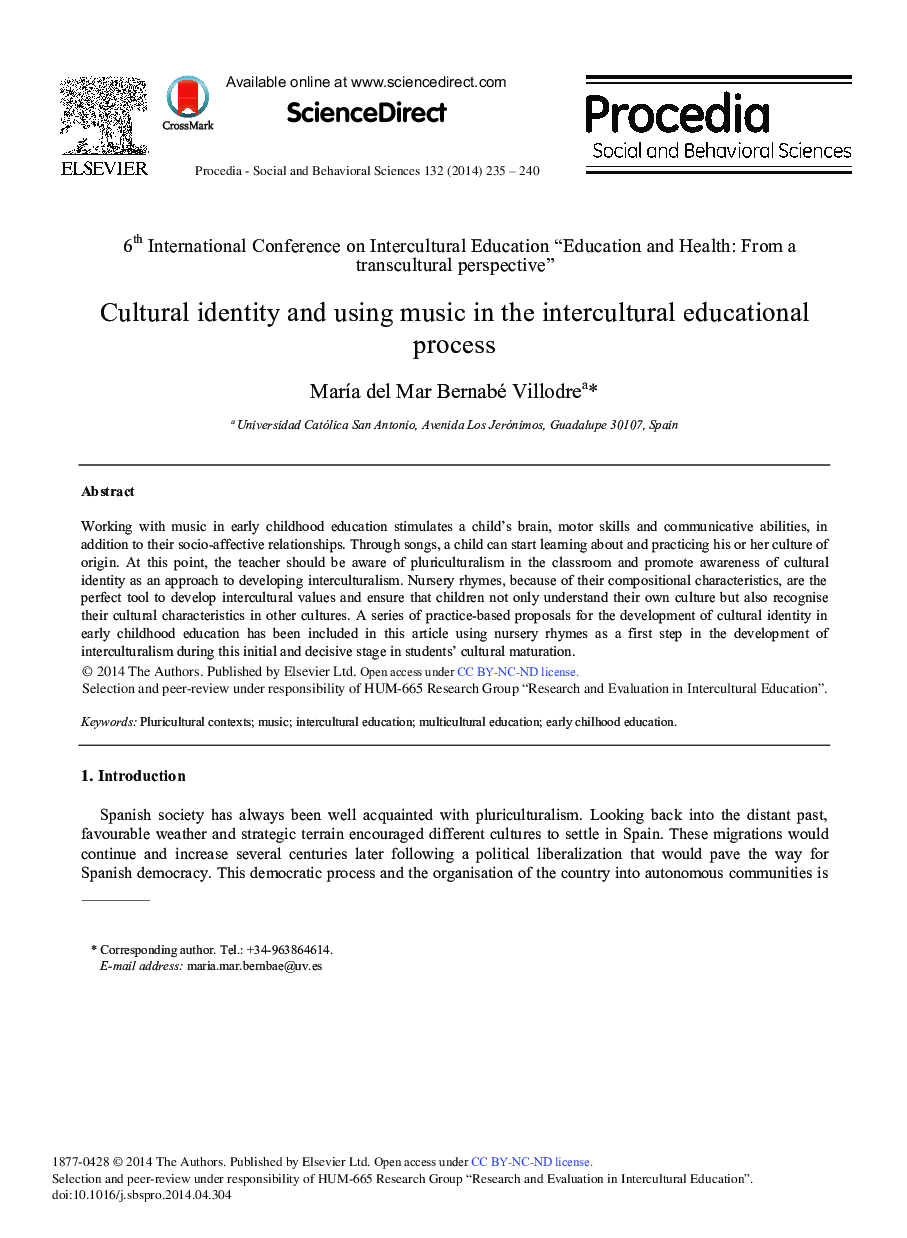| Article ID | Journal | Published Year | Pages | File Type |
|---|---|---|---|---|
| 1114649 | Procedia - Social and Behavioral Sciences | 2014 | 6 Pages |
Working with music in early childhood education stimulates a child's brain, motor skills and communicative abilities, in addition to their socio-affective relationships. Through songs, a child can start learning about and practicing his or her culture of origin. At this point, the teacher should be aware of pluriculturalism in the classroom and promote awareness of cultural identity as an approach to developing interculturalism. Nursery rhymes, because of their compositional characteristics, are the perfect tool to develop intercultural values and ensure that children not only understand their own culture but also recognise their cultural characteristics in other cultures. A series of practice-based proposals for the development of cultural identity in early childhood education has been included in this article using nursery rhymes as a first step in the development of interculturalism during this initial and decisive stage in students’ cultural maturation.
